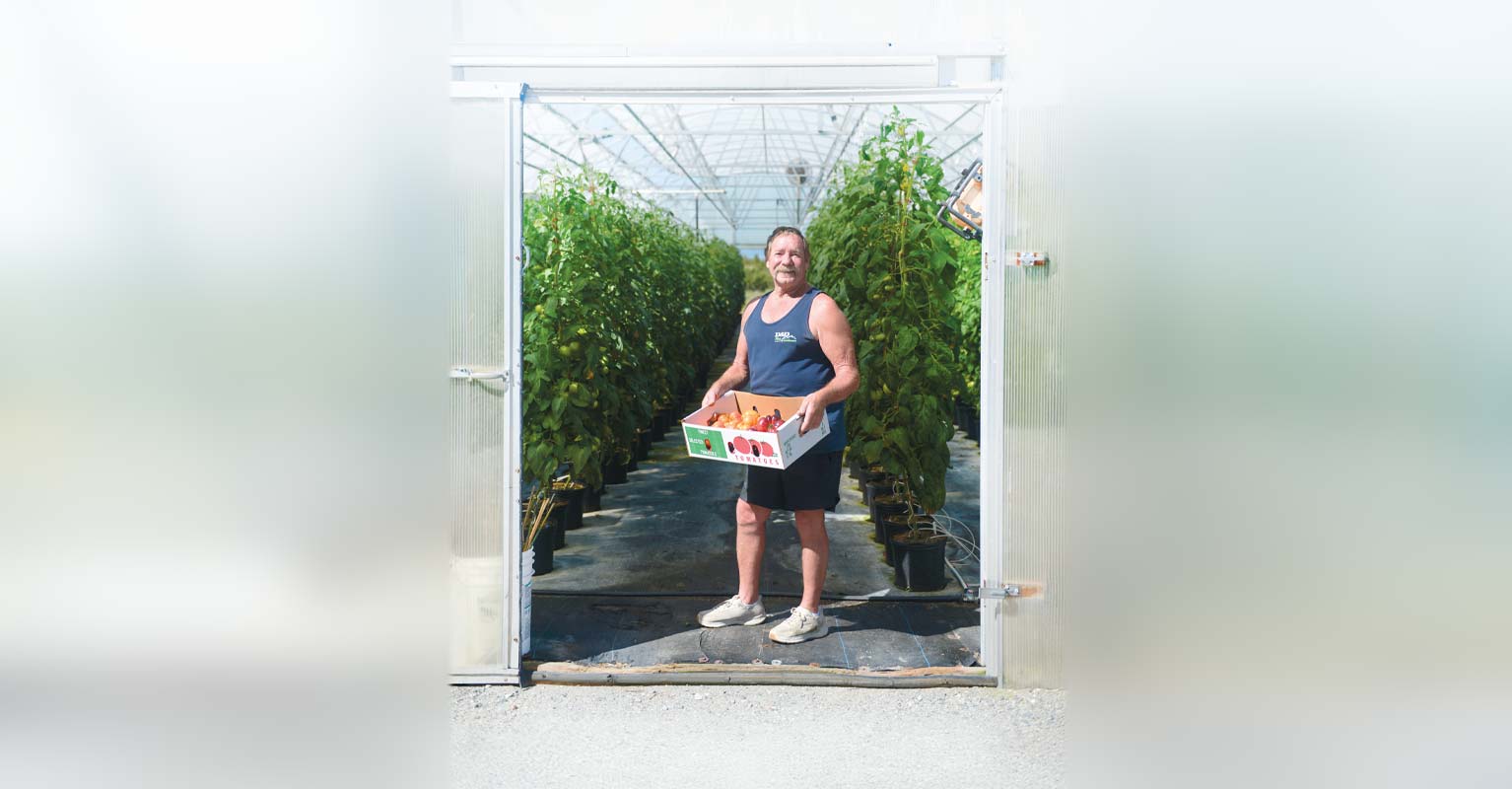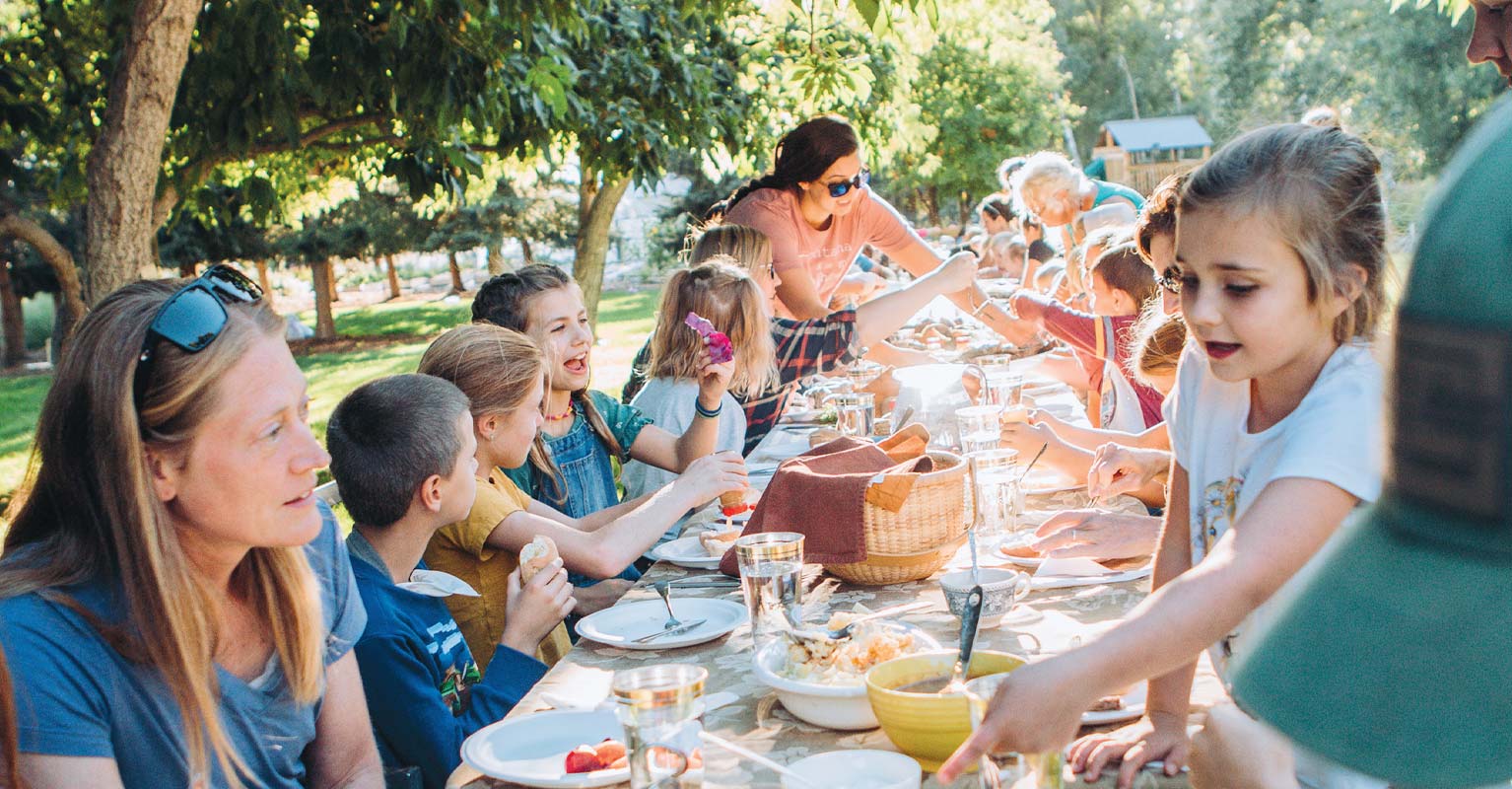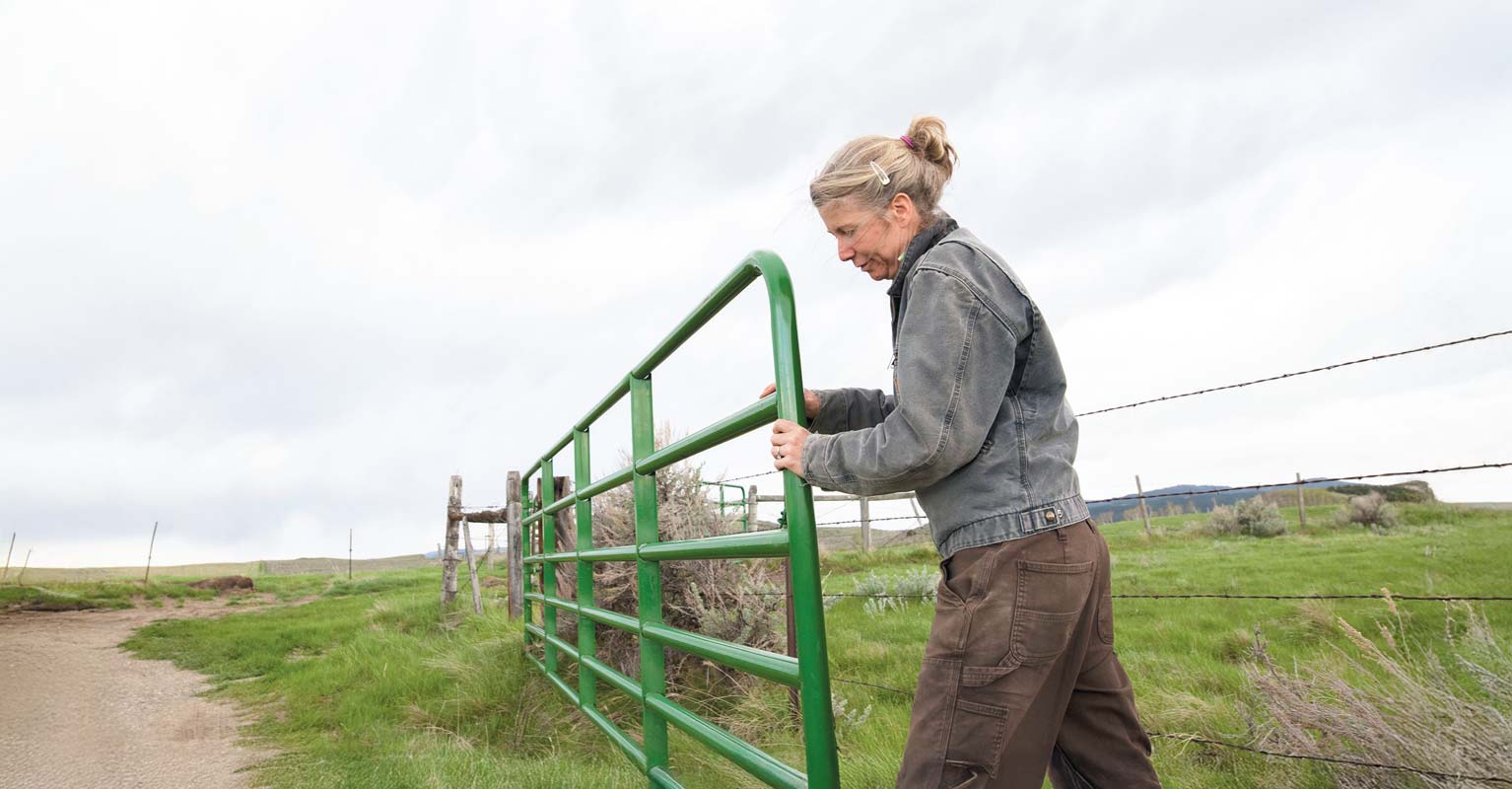Farmer Kenny VanDyke (third from left) and his crew, Cody Peterson, Trevor Eggena, and Nathan Eggena, harvest wheat from their Bozeman plots. If conditions are in their favor, it takes about a month to complete.
Kenny VanDyke Adopts Conservation Farming Practices to Heal His Soul
Bozeman is at an interesting intersection between development and heritage: Conventional farming methods have largely reigned king and cityscapes are devouring agricultural land, leaving a destructive path of depleted soils and paved fields. But Kenny VanDyke of Hyline Farms is among those who are breaking the mold. Equal parts realist and romantic, VanDyke blends various models of traditional practices and regenerative farming into a commercial concoction of viable urban farming that works to heal the soil and his soul.
A fourth-generation resident of Gallatin County, VanDyke knows all too well the challenges, rewards, and creativity required to begin from scratch. His great-grandfather came from the Netherlands, settling with his vegetable farm in the Churchill/Amsterdam area. Moving into livestock, his grandfather raised chickens, pigs, dairy cows, and Black Angus. Later, his father raised Black Angus as well. Now, VanDyke and his brother, Mark, grow wheat, durum, lentils, and chickpeas.
The legacy of farming runs deep in this family and comes with its own set of struggles. VanDyke grew up with his three brothers on the family land west of Bozeman but generational alcoholism consumed his father, and they lost the family land to pay his debts.
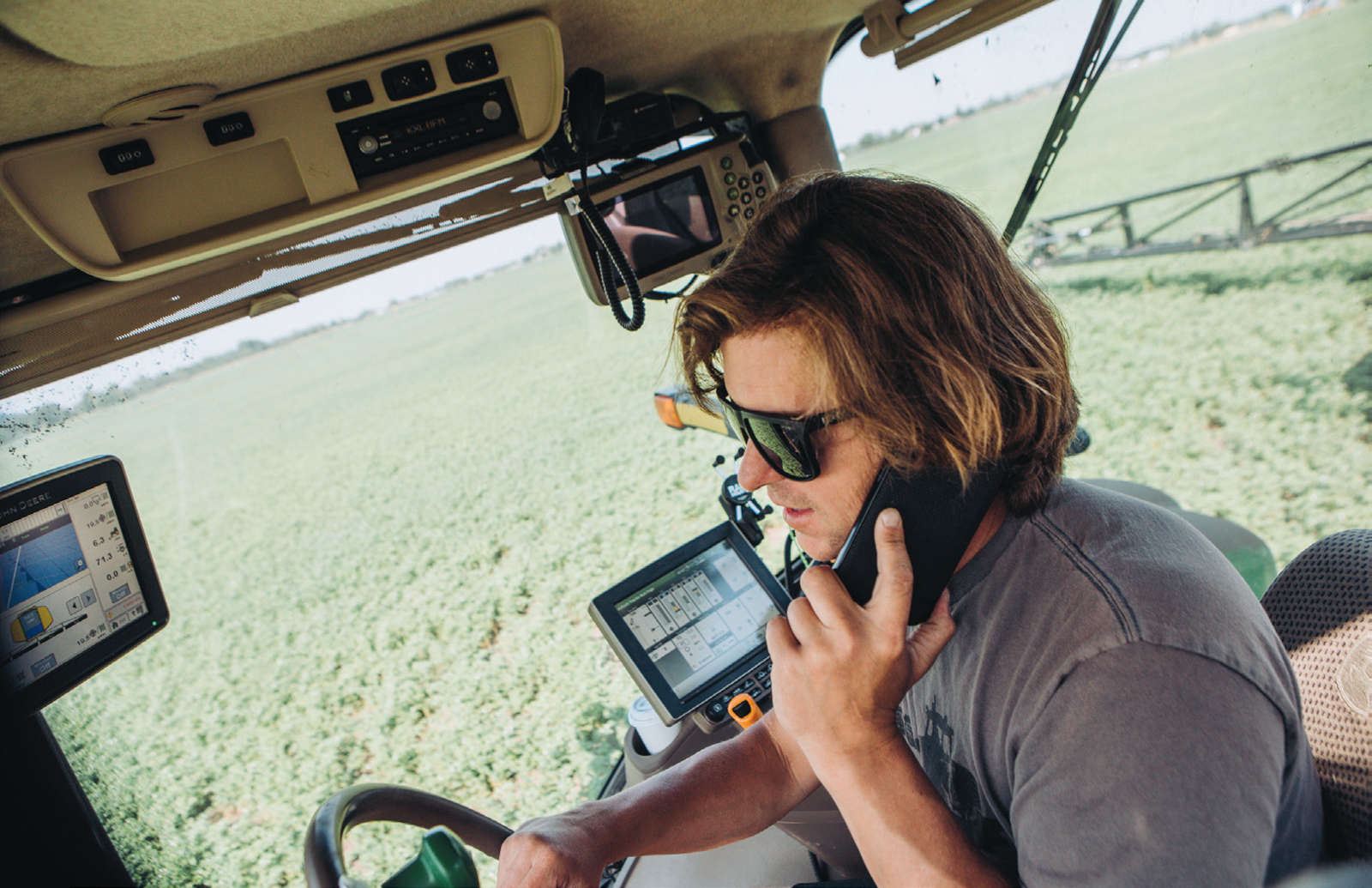
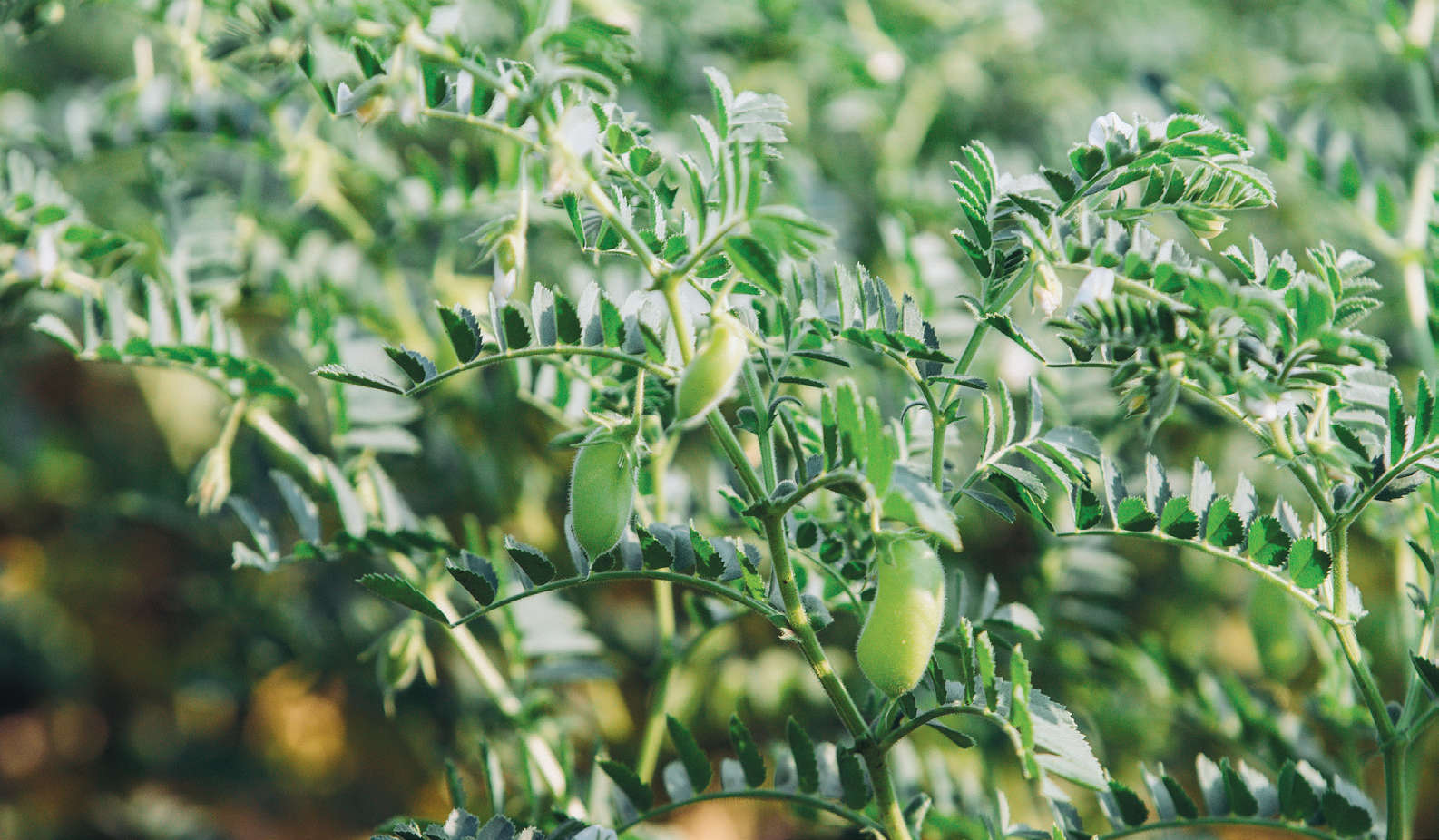
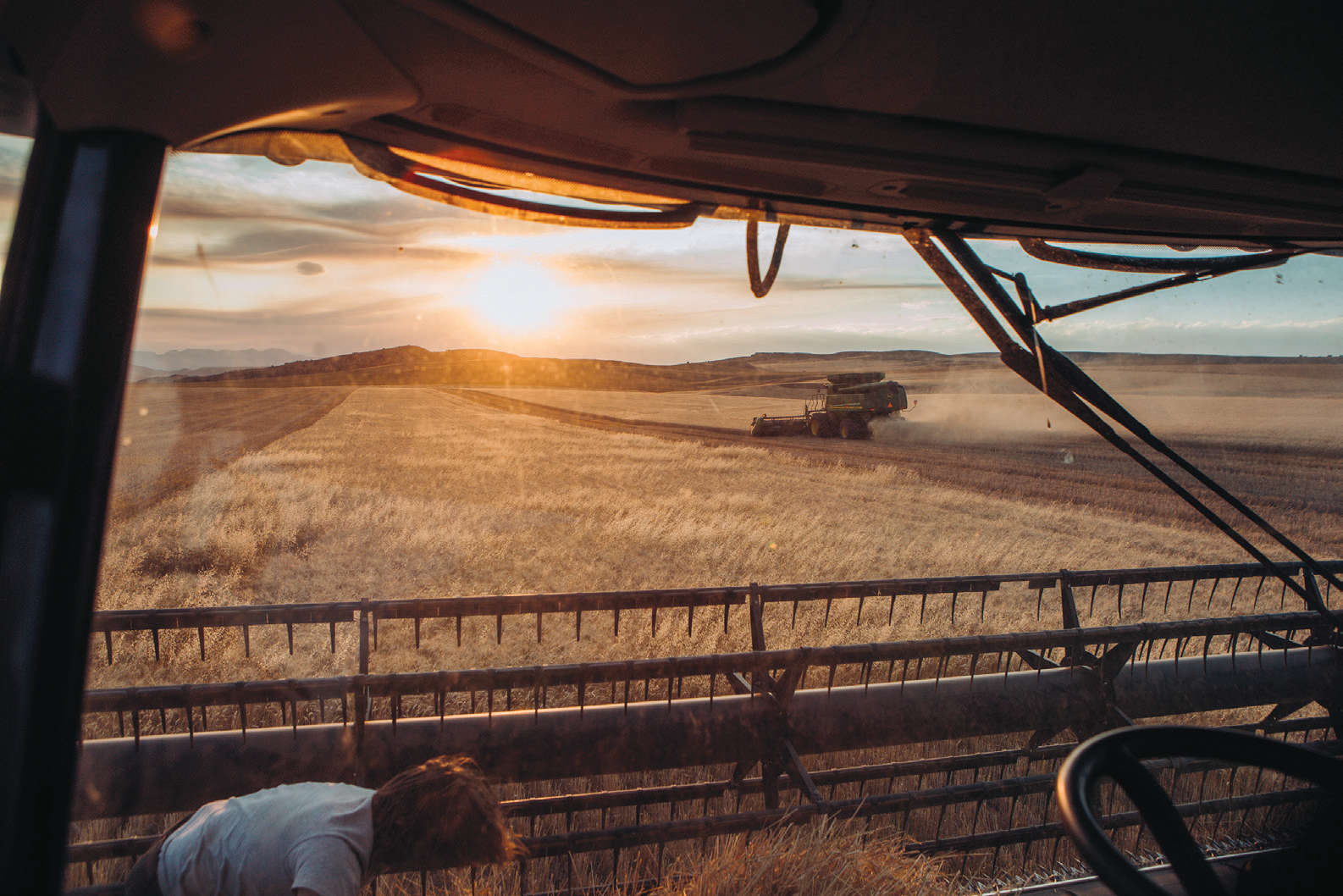
It’s a well-known fact that people getting into farming and ranching face huge barriers to entry unless they are born into the land. Land prices are such that the investment is often too high for the risk, large enough tracts of land are hard to come by, and leased ground is competitive. Although scrappy and creative, VanDyke and his brother would have to start from scratch if they wanted to remain in agriculture.
In 2011 the brothers joined forces. They were determined to make a new name for themselves, no longer relying on cattle. VanDyke had never cared for ranching and instead was drawn to the connection to land that comes from stewardship. The brothers put their heads together and started with 1,200 acres of leased ground in Bozeman, much of which remained from their family’s old leases.
“Our first year, the only way we were able to keep anything was to pay two year’s rent,” VanDyke says, adding that they had a lot of help getting started. They capitalized on local resources such as the Farm Service Agency’s guaranteed loans through the Beginning Farmer programs, subsidies from soil health programs through the Natural Resources Conservation Service and Montana Department of Natural Resources and Conservation, and—most importantly—the flexibility and trust of their landlords and local vendors.
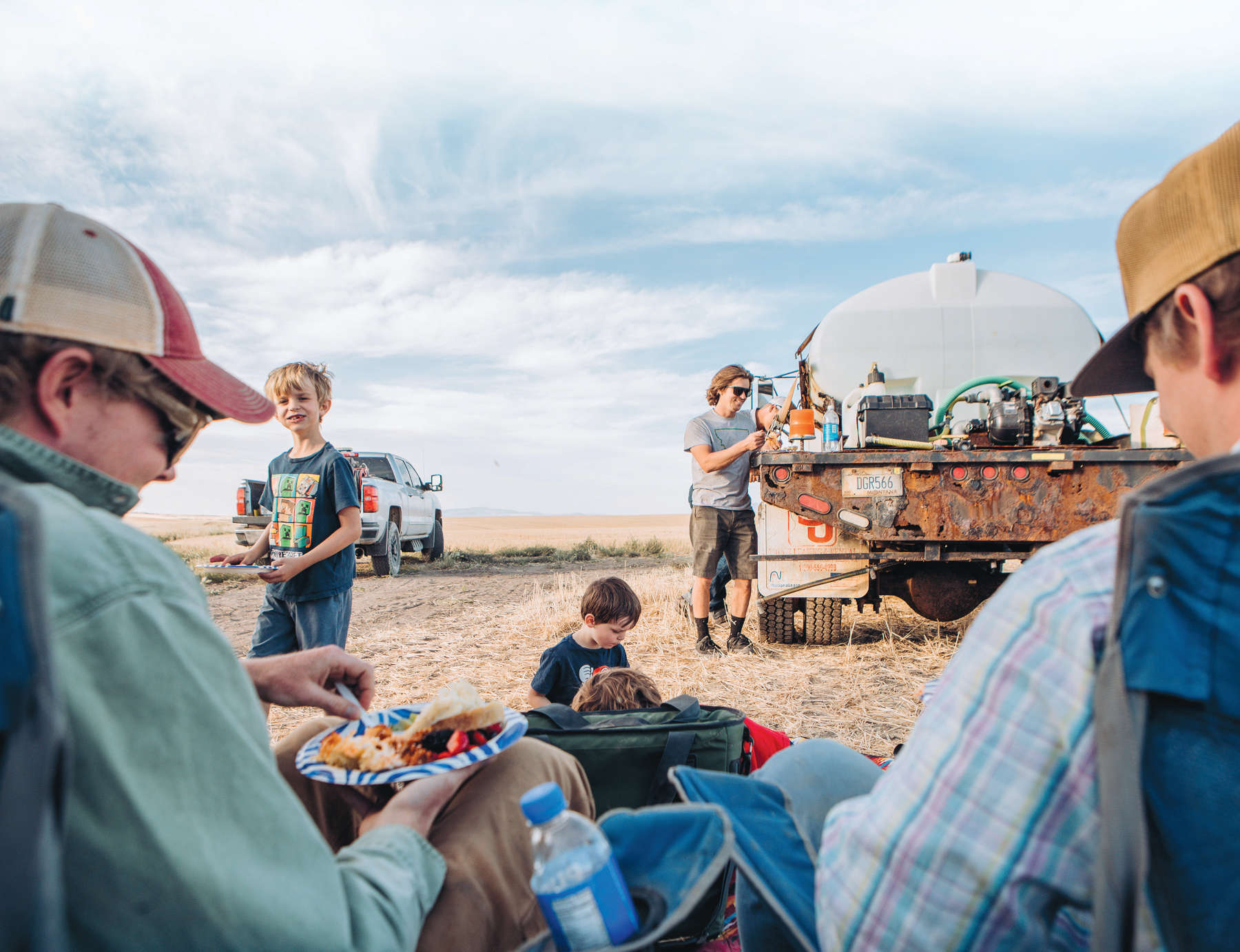
As Kenny VanDyke has done the work to heal personally, he’s also worked to heal the land around him. He’s up to the challenge of coming into land that’s been abused.
But the early years were challenging. VanDyke felt the weight of mounting financial pressures. He was losing farm leases to developments with nothing to replace them. He had a young family with two small children and didn’t own a home. VanDyke was losing motivation, questioning if farming was the right direction in his life. Depression began taking hold, and his own struggle with alcohol surfaced. VanDyke’s family dynamic continued to haunt him. He had to do more than simply make a new name for himself. He had to heal.
Just as a thriving soil structure has a diverse ecosystem of living microbes, so too is a person’s wellness dependent on its entire community. VanDyke developed his own support networks, his “life group,” he calls them. Reconnecting with his faith had a pivotal impact on his sobriety.
As VanDyke has done the work to heal personally, he’s also worked to heal the land around him. He’s up to the challenge of coming into land that’s been abused.
“Some of the land we lease has been traditionally farmed for so long, it’s stripped of much of its value,” he says. Van- Dyke and his brother have worked tirelessly to improve the soil’s health, learn about its biology, and apply new models for conserving moisture, reducing chemical inputs, and bolstering yields.
Their business model in the Bozeman area could be called conservation farming, a unique blend of sustainable farming practices within a commercial framework that strives to reduce chemical applications and maintain soil health. They practice methods such as no-till drilling, rotating and diversifying crops, and utilizing cover crops. VanDyke admits there are varying perspectives on these methods; farmers have to decide what’s right for them and their values.
VanDyke often juggles big questions, such as how much to invest in improving the soil health of leased land when its sale is imminent. The crux is apparent when you consider that it’s estimated to take about seven years before a farmer sees an improvement in soil health after implementing no-till methods.
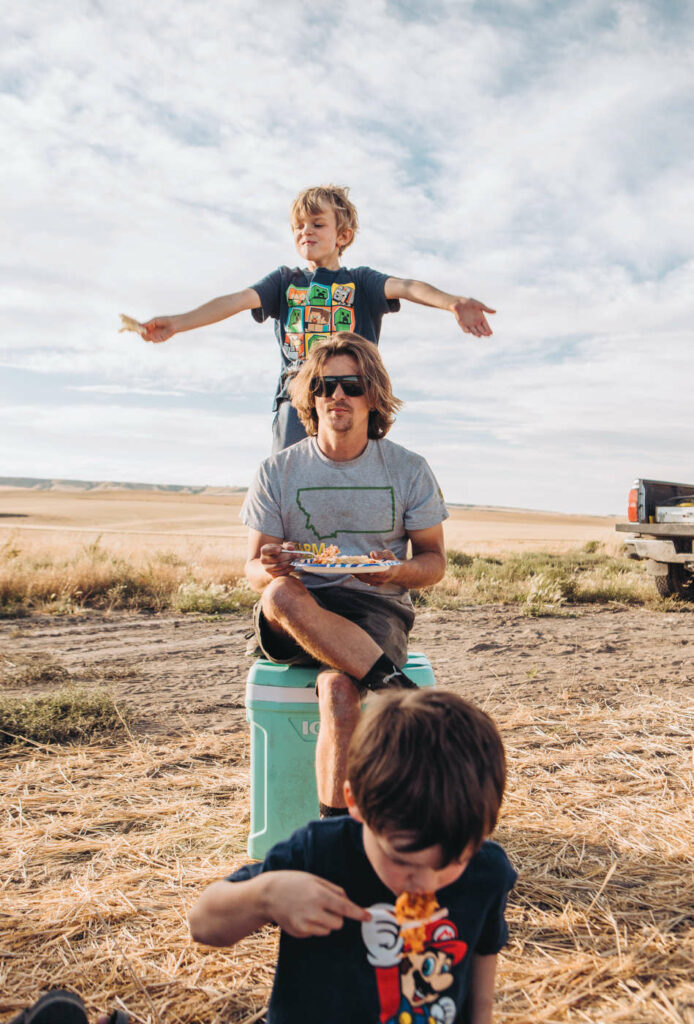
“The only reason we’re able to play around with a lot of these ideas is because we don’t have anyone above us telling us how it’s always been done.” —Kenny VanDyke Hyline Farms
“It’s hard to spend a lot of time and money on land you know will likely be paved over,” he says. VanDyke also struggles with reducing chemical applications while maintaining an affordable price point for his wheat. He sighs. “I just can’t stand the idea of kids going hungry.”
Between 2020 and 2021, VanDyke got sober. He had another baby on the way, and Hyline Farms experienced another big leap in growth. The brothers acquired land in Chester, where huge wheat farms abound. Mark took the lead there, and VanDyke describes him as a bit of a mad scientist. With enough equity to buy some of their own land, the Chester acquisitions have given them the freedom and security to experiment, get creative, and really invest in the soil’s health. They work to improve the natural biology of the soil in order to feed the crop versus applying synthetic inputs.
“The only reason we’re able to play around with a lot of these ideas is because we don’t have anyone above us telling us how it’s always been done,” VanDyke says. Without a family patriarch, the brothers have had the freedom to experiment. And that has made all the difference.
Creating a commercial farming operation from scratch is a near-impossible feat given Bozeman’s cultural and economic landscape. VanDyke is a hustler in the best sense: nimble, passionate, strategic, and visionary. He’s done everything from wildflower pollinator plantings to land art projects (see page 43 or read “Seed in the Ground” in the Spring 2024 issue), and he even dreams of creating his own farm-to-family food shares that would benefit low-income households.
date, the brothers hold 8,000 acres between Bozeman and Chester and grow a variety of crops as the market continues to evolve. Now four years sober, with a hell of a lot of faith, hope, and love, VanDyke has gained tremendous amounts of ground, both in his life, and in his work.


